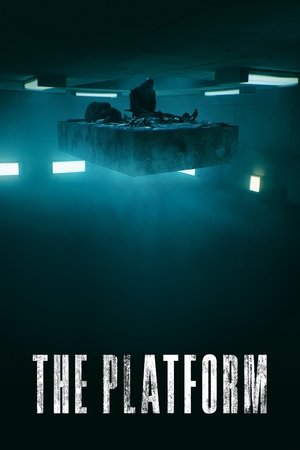
The Platform
If you enjoy reading my Spoiler-Free reviews, please follow my blog @ https://www.msbreviews.com Netflix has been supporting small, independent filmmaking for a while now. In 2018, Roma (re)opened a Best Picture nomination path to foreign films. Last year, Martin Scorsese's epic The Irishman could only come to life via streaming since no major studio wanted a three-and-a-half-hour runtime for a theater release. Between these two, dozens of other indie flicks got Netflix's (or other streaming networks) support. 2020 brings us a Spanish horror-thriller from a first-time director (Galder Gaztelu-Urrutia): The Platform (or El Hoyo). Since its showing at TIFF, this movie has been receiving overwhelmingly positive feedback. So, obviously, I needed to add it to my list. I watched it a couple of days ago, and I wanted to take time to think about it because it's definitely going to become a divisive film, especially among general audiences. The Platform carries an extremely abstract narrative, filled with symbolism, metaphors, analogies, and allegories to our political-social-economic situation. It's not a straightforward thriller at all. It's a tremendously intriguing concept, developed through captivating storytelling and a very dark tone. It's a prison that resembles our society of today. Filled with hypocrisy and selfishness. One month, you're the king of the world on a level where food comes in excess, but you still want it all for yourself, ignoring desperate requests from down below. As soon as in the next day, you're a miserable human being, fighting for scraps with your "cellmate", and on the exact same position those desperate people were before... And now you want their help?! That last narrative analogy to the real world is undoubtedly my favorite. I was never a fan of politics (who is?), so analogies and symbolism regarding that part of our life don't really impact me. However, it's clear that the screenwriters put a lot of effort into making such a meaningful story. If the ambiguousness is removed from the screenplay, there's still plenty to enjoy. Goreng's arc goes from just trying to get a diploma to actually save the people from lower levels. His story takes the viewer through tons of violence, blood, gore, and genuinely disgusting sequences. Therefore, people who want straight-up popcorn-action instead of a more philosophical take as the filmmakers intended, there's a lot to be entertained by. The Platform is also another proof that you don't need a massive budget to build an immersive atmosphere. The set and production design are as simple as they could be, but it's especially due to that simplicity that the claustrophobic prison works so well. For a directorial debut, Galder Gaztelu-Urrutia does an excellent job of controlling the pacing and applying the right shots to each situation. Unfortunately, my main issue is the same as most people: the ending. I will restrain myself from giving away any minor spoilers, so I'll just write that it doesn't work at all levels, at least not for me. As expected, it's as ambiguous as the rest of the movie. As soon as I finished the film, I was frustrated by so many unanswered (logical) questions, and after a couple of days of thinking about it, these questions still exist. You'll never find an answer to everything, but that was never the main goal. There has to be a balance between reality and fiction. Between what's real and what's just a metaphoric symbol. No one can justify *everything* with "oh, it's just a representation of something else". For me, there are two ways of interpreting the ending: I could either take everything literally, which would raise tons of questions without an answer, or I could try and solely look at the story through Goreng's perspective. I do believe the latter approach is the best one, even if it still carries other issues regarding secondary characters. It doesn't answer everything, but it's the perspective I find to make more sense with the movie. It makes the screenplay more cohesive and congruent. Nevertheless, the problem I can't seem to avoid is the abrupt break in tone. For such a brutal, raw, bloody display of human behavior in a situation of survival (the way colors are used is very clever), the climax feels detached from everything that comes before. The underlying themes are there from the get-go, but these are precisely what they are: secondary messages lying under a pretty real story. Going from horrible murders, sacrifices, and God knows what else, to such a philosophical, soulful ending in the way the film does... it's far from a seamless transition. Basically, if you go in expecting definite answers about whatever this prison is, who controls it, and how it truly works, you'll probably leave disappointed and frustrated. It's one of those movies that heavily relies on how people perceive its ending and how much impact does it cause on an overall opinion. Looking at the conclusion solely from Goreng's perspective works the best for me, even if some unanswered (logical) questions still exist. The abrupt break in tone transitioning to the film's climax is my main problem, but The Platform has plenty of positives. An extremely intriguing premise is developed through remarkably captivating storytelling, and an exceptional cast elevates the well-written screenplay. First-time director Galder Gaztelu-Urrutia and his team do an excellent job. Set and production design prove how a small budget can still create an immersive, claustrophobic atmosphere. Even if the ending only works partially, the symbolism and allegories of our world's politics and social-economic situation are a brilliant, thought-provoking piece of a screenplay. I like more it the more I think about it. Rating: B+
